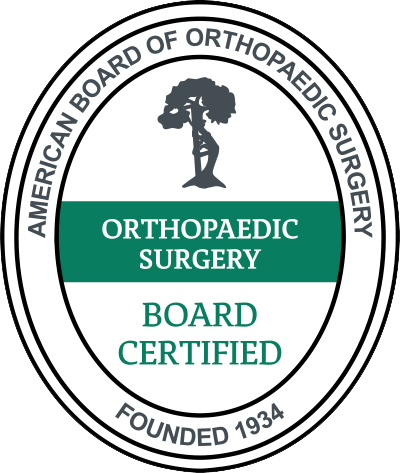Medically reviewed by Jessica Morton, M.D.
Joint replacement surgery is often performed to relieve chronic pain and improve mobility in individuals suffering from severe joint damage due to arthritis, injury, or other degenerative conditions. When conservative treatments like medications, physical therapy, and lifestyle changes fail to provide adequate relief, joint replacement can restore function and quality of life. By replacing the damaged joint with an artificial one, patients can regain the ability to perform everyday activities with less pain and greater ease.
At OrthoConnecticut, we are committed to ensuring our patients are well-prepared for this significant step in their health journey. Here’s a comprehensive guide to help you prepare for your joint replacement surgery, making the process as smooth and stress-free as possible.
Pre-Surgery Checklist:
1. Consultation, Preoperative Assessment, and Medication Review
- Schedule a consultation with your orthopedic surgeon to discuss your medical history, current medications, and any potential risks.
- Undergo preoperative assessments, including blood tests, X-rays, and possibly an MRI or CT scan, to ensure you are in optimal condition for surgery.
- Review your current medications with your doctor. Some medications, particularly blood thinners, may need to be adjusted or stopped before surgery.
- Inform your surgeon about any supplements or over-the-counter medications you are taking.
2. Physical Preparation
- Engage in preoperative exercises as recommended by your surgeon or physical therapist. Strengthening the muscles around the joint can aid in recovery.
- Maintain a healthy weight to reduce stress on the joints and improve surgical outcomes.
3. Home Preparation
- Prepare your home for your return after surgery. This might include rearranging furniture to create a clear path, installing handrails, or setting up a recovery area on the main floor to avoid stairs.
- Stock up on groceries and essential supplies to minimize the need for errands during your recovery period.
- If your doctor has recommended a cold therapy machine, make sure to rent or purchase one ahead of time, as well as several reusable ice packs.
4. Plan Your Recovery
- Arrange for someone to assist you during the initial days or weeks after surgery. This can include help with daily activities, transportation to follow-up appointments, and emotional support.
- Familiarize yourself with any mobility aids you might need post-surgery, such as crutches, walkers, or a cane.
5. Day of Surgery
- Follow your surgeon’s instructions regarding fasting and medication on the day of surgery.
- Arrive at the hospital or surgical center at the designated time with all necessary paperwork and identification.
Wear loose, comfortable clothing that is easy to put on and take off.
Post-Surgery Care
1. Hospital Stay
- Expect to stay in the hospital for one night following the surgery. During this time, you will receive pain management, physical therapy, and care instructions from your medical team.
2. Pain Management
- Pain is a common part of recovery, but it can be managed with medications prescribed by your doctor. Follow your pain management plan closely.
3. Physical Therapy
- Begin physical therapy as soon as possible, usually within a day of surgery. Physical therapy is crucial for regaining strength, flexibility, and function in the joint.
4. Follow-Up Appointments
- Attend all scheduled follow-up appointments with your surgeon to monitor your progress and address any concerns.
At-Home Recovery - Continue prescribed exercises at home and follow your doctor’s guidelines for activity levels. Gradually increase your activity as recommended.
5. Technology as an Organizing Tool
- Post-surgical care is crucial for a successful recovery, and technology can play a significant role in managing this process. Using smartphone calendars and reminder apps, patients can easily keep track of their follow-up appointments, medication schedules, and physical therapy sessions. Health apps often allow for setting reminders, logging symptoms, and even communicating with healthcare providers, ensuring that patients stay on top of their recovery program. This organized approach can lead to a smoother recovery and better overall outcomes.
6. Emotional Support and Well-Being
- Undergoing joint replacement surgery is not only a physical challenge but an emotional one as well. It’s natural to feel anxious, stressed, or even fearful about the surgery and the recovery process. Here are some strategies to support your emotional well-being:
- Stay Connected: Keep in touch with family and friends. Their support can provide comfort and reassurance. Don’t hesitate to express your feelings and let them know how they can help.
- Join Support Groups: Consider joining a support group for individuals undergoing joint replacement surgery. Sharing experiences and hearing from others who have been through the same process can be incredibly encouraging.
- Practice Relaxation Techniques: Engage in relaxation techniques such as deep breathing exercises, meditation, or gentle yoga. These can help reduce anxiety and promote a sense of calm.
- Set Realistic Expectations: Understand that recovery is a gradual process. Celebrate small milestones and progress along the way. Patience and a positive outlook can make a significant difference.
- Seek Professional Help if Needed: If you find yourself feeling overwhelmed or struggling to cope, don’t hesitate to seek support from a mental health professional. Therapy or counseling can provide valuable tools to manage stress and emotions during this time.
Tips for a Successful Recovery
- Stay Active: Engage in gentle activities like walking to promote blood circulation and prevent complications.
- Nutrition: Eat a balanced diet rich in proteins, vitamins, and minerals to support healing.
- Hydration: Drink plenty of water to stay hydrated and aid in recovery.
- Rest: Ensure you get adequate rest to allow your body to heal.
Preparing for joint replacement surgery involves careful planning and a proactive approach to ensure the best possible outcome. The goals are to alleviate pain, restore function, and improve quality of life. At OrthoConnecticut, we are here to support you every step of the way. If you have any questions or need further assistance, do not hesitate to contact our team.
For more information and resources, visit our website or schedule a consultation with one of our experienced orthopedic surgeons today.



















